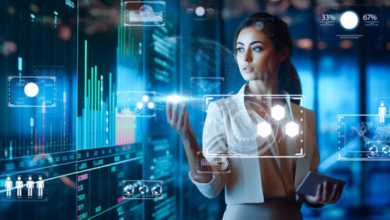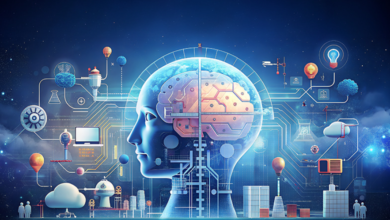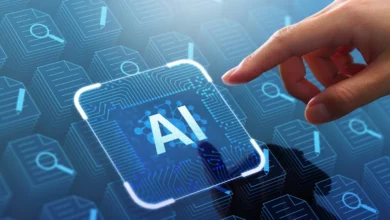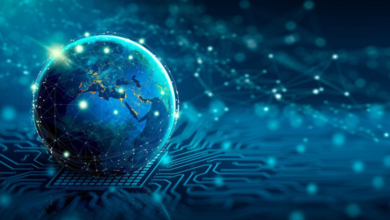The Impact of Artificial Intelligence on Modern Business and Society
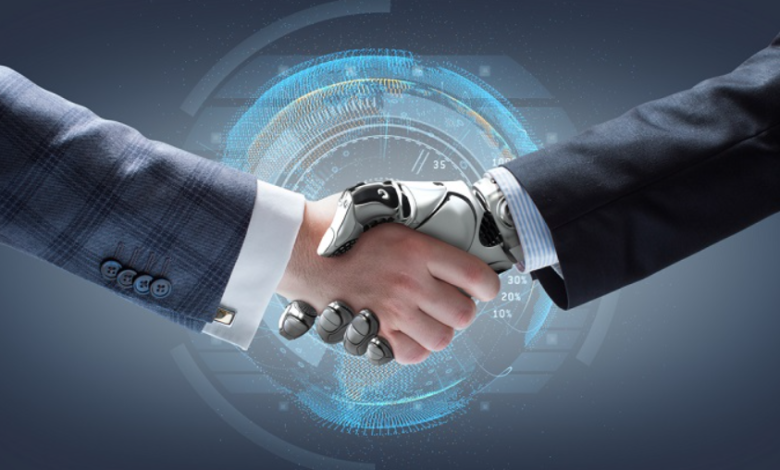
Artificial Intelligence (AI) is no longer a distant concept confined to science fiction; it has become a powerful force shaping the landscape of modern business and society. From automating mundane tasks to revolutionizing customer experiences, AI’s impact is profound, wide-reaching, and transformative. This article explores how AI is influencing industries, reshaping societal norms, and what the future holds for this groundbreaking technology.
Understanding Artificial Intelligence
At its core, Artificial Intelligence refers to computer systems capable of performing tasks that traditionally require human intelligence. These tasks include recognizing speech, making decisions, understanding language, and even perceiving visual inputs. Thanks to rapid advancements in machine learning, natural language processing, and deep learning, AI systems today can analyze vast amounts of data with precision and speed that far surpass human capabilities.
The Evolution of AI: From Theory to Practice
The journey of AI began in the 1950s when researchers first imagined machines that could simulate human thought. Over the decades, breakthroughs such as expert systems in the 1980s and the rise of neural networks in the 2000s laid the foundation for today’s AI revolution. The proliferation of big data and increased computing power accelerated AI’s capabilities, enabling practical applications across diverse industries.
See also: Top 10 Emerging Technologies That Will Change the World
AI in Business: Driving Efficiency and Innovation
Modern businesses increasingly rely on AI to streamline operations, enhance decision-making, and improve customer engagement. AI-powered analytics uncover hidden trends and insights in data, empowering companies to make smarter, faster decisions. In customer service, AI-driven chatbots provide instant support, while recommendation engines personalize shopping experiences, fostering customer loyalty.
Automation is another significant benefit. By deploying Robotic Process Automation (RPA), companies can automate repetitive and time-consuming tasks, reducing errors and freeing human employees to focus on strategic initiatives. This blend of automation and intelligence optimizes operational efficiency, lowers costs, and accelerates innovation cycles.
Transforming Customer Experience with AI
In today’s competitive marketplace, customer experience is a key differentiator. AI enhances this by enabling businesses to deliver highly personalized and timely interactions. For example, AI algorithms analyze user behavior and preferences to suggest products or services tailored to individual tastes. Virtual assistants and chatbots offer seamless 24/7 customer support, resolving queries swiftly without human intervention.
Moreover, AI can predict customer needs before they arise by analyzing patterns in purchasing behavior and social media interactions. This proactive approach not only boosts satisfaction but also drives sales and customer retention.
Marketing and Sales Optimization through AI
Marketing departments are leveraging AI to target audiences more effectively and maximize campaign ROI. AI tools analyze vast datasets to segment customers based on demographics, behavior, and purchasing history. Predictive analytics then forecast customer responses, enabling marketers to tailor messages and timing for optimal impact.
In sales, AI-powered CRM systems track leads and prioritize prospects, ensuring that sales teams focus their efforts where chances of success are highest. This data-driven approach shortens sales cycles and increases conversion rates.
Automation and Operational Excellence
Beyond customer-facing functions, AI automates internal processes such as inventory management, supply chain optimization, and quality control. AI-driven predictive models help businesses anticipate demand fluctuations and adjust production accordingly, reducing waste and preventing stockouts.
In logistics, AI optimizes routes and schedules for delivery fleets, cutting fuel consumption and speeding up shipments. These efficiencies translate into cost savings and improved service reliability, crucial advantages in today’s fast-paced markets.
AI-Enabled Decision Making
The sheer volume and complexity of business data can overwhelm traditional analytics tools. AI algorithms excel at parsing these massive datasets to provide actionable insights. From identifying emerging market trends to assessing risks, AI enhances strategic decision-making across organizations.
Real-time AI dashboards enable managers to monitor key performance indicators and respond swiftly to changing conditions, whether it’s a sudden supply chain disruption or shifting customer preferences.
AI’s Disruption of the Financial Sector
The finance industry has embraced AI for its ability to enhance security, streamline operations, and improve customer experiences. AI systems detect fraudulent transactions by analyzing unusual patterns in real-time, protecting both institutions and customers.
Automated credit scoring models evaluate borrower risk more accurately than traditional methods, enabling fairer lending decisions. Additionally, AI-driven trading platforms execute complex trades at lightning speed, maximizing returns while minimizing risks.
Revolutionizing Healthcare with AI
Healthcare is among the most promising fields benefiting from AI innovations. AI-powered diagnostic tools analyze medical images and patient data to detect diseases earlier and with greater accuracy. Personalized treatment plans tailored to individual genetic profiles improve patient outcomes and reduce side effects.
AI also accelerates drug discovery by simulating molecular interactions, drastically cutting the time and cost involved in bringing new medications to market. Furthermore, remote patient monitoring devices powered by AI allow continuous health tracking, reducing hospital visits and improving chronic disease management.
The Workforce and Employment: Challenges and Opportunities
AI’s rise brings significant changes to the workforce. While automation threatens certain routine jobs, it simultaneously creates new opportunities in AI development, data science, and AI ethics oversight. Businesses and governments must invest in reskilling and upskilling programs to prepare workers for AI-augmented roles.
The future workforce will likely consist of humans collaborating with AI systems, enhancing productivity and creativity rather than competing directly with machines.
Societal Implications of AI
AI’s impact extends beyond economics into social structures and cultural norms. It democratizes access to information and services but also risks deepening digital divides where access to AI technologies is uneven.
Ethical concerns arise regarding surveillance, decision transparency, and potential biases embedded in AI algorithms. Society must engage in open dialogue about these issues to ensure AI is developed and deployed responsibly.
Ethical Considerations and Responsible AI
Ensuring fairness, accountability, and transparency in AI systems is paramount. Algorithmic bias can reinforce existing inequalities if unchecked. Organizations should adopt ethical AI frameworks that include continuous monitoring and auditing of AI outputs.
Governments, academia, and industry leaders must collaborate to create policies that protect privacy, prevent misuse, and promote AI for social good.
Privacy and Security Challenges
The data-intensive nature of AI raises significant privacy and security concerns. Safeguarding personal and sensitive data against breaches is critical. Techniques like federated learning and differential privacy are emerging to balance AI effectiveness with data protection.
Building trust with consumers and citizens hinges on transparent data practices and robust cybersecurity measures.
AI in Education: Personalized Learning and Beyond
Education systems are adopting AI to create adaptive learning environments that cater to individual student needs. AI tutors and recommendation engines provide tailored content and pacing, enhancing engagement and knowledge retention.
Moreover, AI facilitates administrative tasks such as grading and enrollment management, freeing educators to focus on teaching and mentorship.
AI for Environmental Sustainability
AI contributes to sustainability by optimizing energy consumption in buildings, improving precision agriculture, and monitoring wildlife and ecosystems. Predictive models help anticipate and mitigate natural disasters, aiding in climate resilience efforts.
Harnessing AI for environmental goals is vital as the world confronts escalating climate challenges.
Government and Public Services Enhanced by AI
Governments worldwide deploy AI for smart city initiatives, improving traffic management, public safety, and resource allocation. AI-powered platforms streamline public administration, making services more accessible and efficient for citizens.
Transparency and ethical use in government AI applications are essential to maintain public trust.
Future Trends in AI for Business and Society
The future promises AI systems that are more explainable, trustworthy, and collaborative with humans. Edge AI will enable real-time processing closer to data sources, reducing latency and enhancing privacy.
AI-human teaming will become commonplace, with AI augmenting creativity and empathy in workplaces and communities.
The Global Economic Impact of AI
AI is projected to add trillions of dollars to the global economy by boosting productivity and fostering innovation. Countries leading in AI adoption will gain significant competitive advantages in the global marketplace.
Ensuring inclusive access to AI benefits is key to preventing widened economic disparities.
Startups and Innovation: The AI Frontier
A vibrant ecosystem of startups continues to push AI’s boundaries, creating disruptive applications across healthcare, finance, transportation, and entertainment. These innovators drive rapid technology transfer from research labs to practical, impactful solutions.
AI in Entertainment and Media
AI transforms entertainment by personalizing content recommendations, automating video editing, and even generating original music and art. Interactive AI-driven experiences engage audiences in novel ways, shaping the future of media consumption.
Balancing Benefits with Risks
To fully realize AI’s potential, society must balance innovation with caution. Clear regulations, ethical guidelines, and multi-stakeholder cooperation will help mitigate risks such as job displacement, privacy breaches, and misuse.
Preparing for an AI-Driven Future
Education systems, governments, and industries must collaborate to prepare individuals and institutions for a world increasingly influenced by AI. Emphasizing lifelong learning, digital literacy, and ethical AI use is critical to success.
Conclusion: Embracing AI Responsibly
Artificial Intelligence stands as one of humanity’s most transformative inventions. When developed and deployed responsibly, AI can unlock immense benefits, driving economic growth, societal advancement, and improved quality of life. By proactively addressing ethical, social, and economic challenges, we can ensure AI becomes a force for good, shaping a smarter and more equitable future.
Frequently Asked Questions (FAQs)
Q1: What sectors benefit the most from AI?
Healthcare, finance, retail, manufacturing, and education are among the top sectors harnessing AI for improved efficiency and innovation.
Q2: How will AI affect jobs in the future?
AI will automate routine tasks but create new roles requiring advanced technical and creative skills. Reskilling and continuous learning are vital.
Q3: What ethical issues does AI raise?
Bias in algorithms, transparency, privacy concerns, and accountability are key ethical challenges needing careful management.
Q4: How can businesses implement AI effectively?
By starting with clear objectives, leveraging quality data, ensuring ethical practices, and investing in talent and infrastructure.
Q5: Is AI safe for society?
With responsible governance, ethical frameworks, and transparent development, AI can be safe and beneficial for society.



